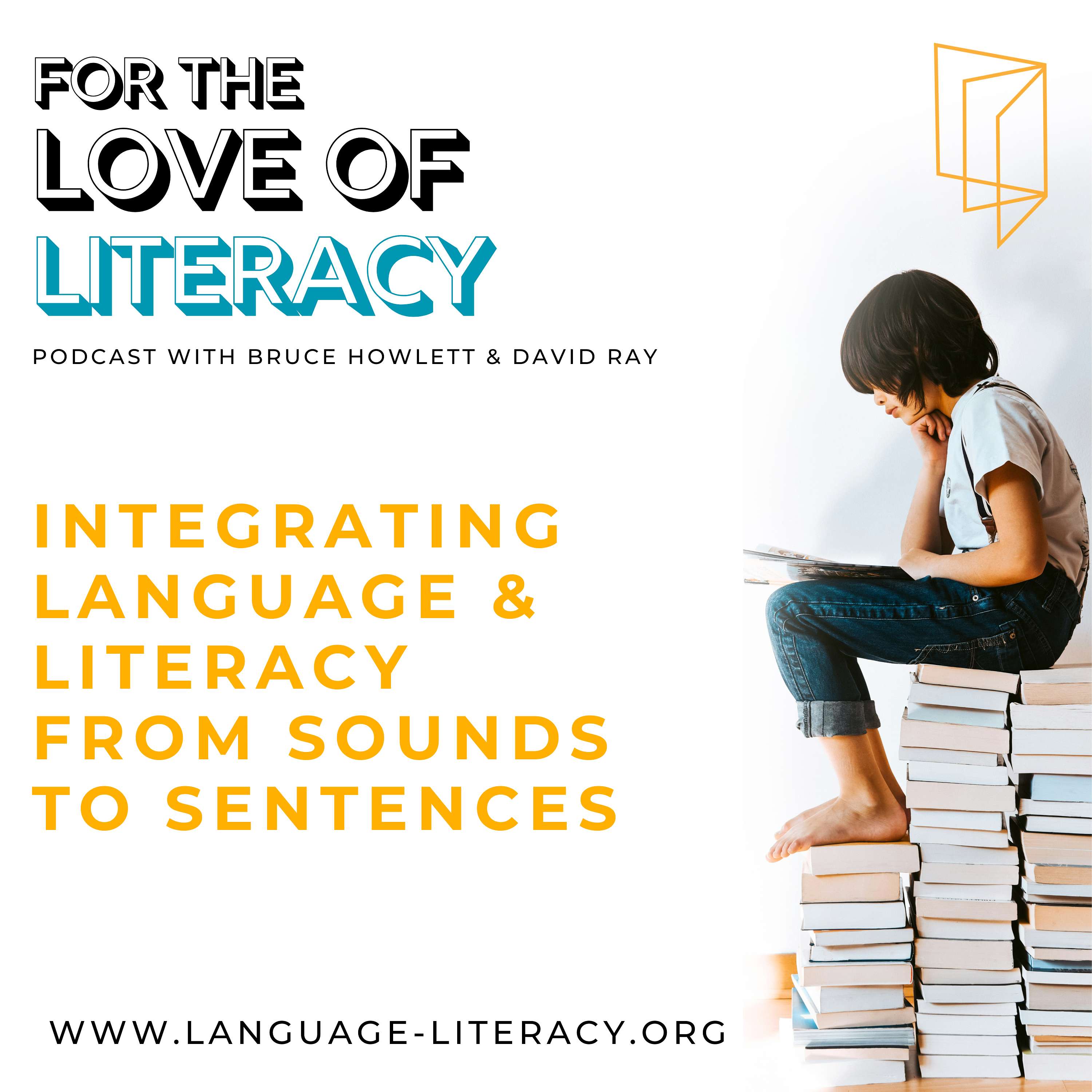Fulfilling Literacy Lessons & Clarifying Conversations

Fulfilling Literacy Lessons & Clarifying Conversations
Podcast Description
Welcome Educators to Fulfilling Literacy Lessons and Clarifying Conversations.We want to introduce you to the many wonderful and creative people who are turning innovative research into practical lessons. We’ll try to clarify many of today’s confusing topics that break down time-consuming silos and demystify critical components of language, including morphology, vocabulary, sentence construction and language comprehension. Our goal is to show how to teach reading, spelling and writing as one integrated ability, making literacy easier to learn and saving hours a week for more enriching activities. Our focus won’t just be on students that receive help from Special education and reading teachers but also disengaged students reading at grade level.You will hear from noted researchers including Linnea Ehri, Marcia Henry and Peter Bowers as well as teachers who have developed lessons that engage students and enrich language abilities. Check back weekly to discover more Fulfilling Literacy Lessons and Clarifying conversations. Feel free to reach out to me at [email protected].
Podcast Insights
Content Themes
The podcast focuses on key topics related to literacy instruction, including morphology, vocabulary development, and sentence construction. For example, episodes feature discussions on Linnea Ehri's theories regarding orthographic mapping, as well as practical lessons derived from the Structured Word Inquiry approach. The content is geared toward clarifying language acquisition challenges faced by both educators and students, particularly disengaged learners and those receiving specialized support.

For the Love of Literacy provides podcasts about the exciting advances in literacy instruction, from morphology and orthography (the spelling system), to meaningful sight word memorization, and sentence construction and comprehension. We focus on the often overlooked aspects of literacy and their links to language development.
We tie learning to read, spell and writing to their roots in spoken language. This makes teaching and learning these abilities much easier because literacy learning is driven by language learning. The major components of spoken language plus vocabulary knowledge strongly predicting and largely determining growth in reading, spelling and writing.
Our guests are not just knowledgeable the links between language and language but know how to implement this learning in the classroom.
You will hear from noted researchers including Linnea Ehri, Marcia Henry and Peter Bowers as well as teachers who have developed lessons that engage students and enrich language abilities. Check back weekly to discover more Fulfilling Literacy Lessons and Clarifying conversations. Feel free to reach out to me at [email protected].
Language issues are a surprisingly common source of reading, spelling and writing difficulties. Developmental Language Disorder (DLD) is impacting students in your classrooms and offices. Listen to Speech-Language Pathologists Kathleen Love and Beth Coppoc Gunshor as they share about observing, supporting and teaching students with language challenges, including DLD. They provide practical methods that boost oral and written language abilities using word and sentence activities rooted in meaning. Find out the importance of showing students how words are built from meaningful parts (morphemes), as well as how to unravel complex sentences so they make sense. Walk away with a better understanding of how to support the language needs of students.
Bio description & links
Kathleen’s newsletter shares her latest musings about literacy, provides access to a ton of free curated resources, and alerts people to community events. More information about her course for literacy interventionists, Using Morphology in Literacy Intervention, can be found here. She also shares regularly and freely at Instagram and on Facebook, and her website is raincityreading.com. There you’ll also find her morphology merchandise shop with shirts and wall calendars!
Beth can be reached through her website, and also found on Instagram or Facebook. She has t-shirts and stickers for sale that are related to Structured Word Inquiry.

Disclaimer
This podcast’s information is provided for general reference and was obtained from publicly accessible sources. The Podcast Collaborative neither produces nor verifies the content, accuracy, or suitability of this podcast. Views and opinions belong solely to the podcast creators and guests.
For a complete disclaimer, please see our Full Disclaimer on the archive page. The Podcast Collaborative bears no responsibility for the podcast’s themes, language, or overall content. Listener discretion is advised. Read our Terms of Use and Privacy Policy for more details.